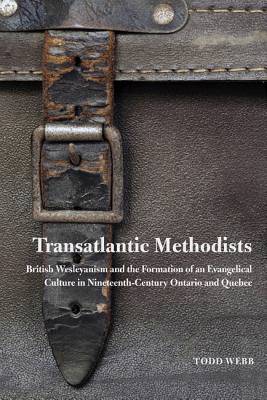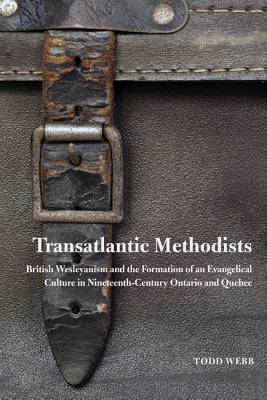
- Afhalen na 1 uur in een winkel met voorraad
- Gratis thuislevering in België vanaf € 30
- Ruim aanbod met 7 miljoen producten
- Afhalen na 1 uur in een winkel met voorraad
- Gratis thuislevering in België vanaf € 30
- Ruim aanbod met 7 miljoen producten
Zoeken
Transatlantic Methodists
British Wesleyanism and the Formation of an Evangelical Culture in Nineteenth-Century Ontario and Quebec Volume 2
Todd Webb
€ 158,45
+ 316 punten
Omschrijving
Methodists in nineteenth-century Ontario and Quebec, like all British subjects, existed as satellites of an influential empire. Transatlantic Methodists uncovers how the Methodist ministry and laity in these colonies, whether they were British, American, or native-born, came to define themselves as transplanted Britons and Wesleyans, in response to their changing, often contentious relationship with the Wesleyan Methodist Church in Britain. Revising the nationalist framework that has dominated much of the scholarship on Methodism in central Canada, Todd Webb argues that a transatlantic perspective is necessary to understand the process of cultural formation among nineteenth-century Methodists. He shows that the Wesleyan Methodists in Britain played a key role in determining the identities of their colonial counterparts through disputes over the meaning of political loyalty, how Methodism should be governed, who should control church finances, and the nature and value of religious revivalism. At the same time, Methodists in Ontario and Quebec threatened to disrupt the Wesleyan Methodist Church in Britain and helped to trigger the largest division in its history. Methodists on both sides of the Atlantic shaped - and were shaped by - the larger British world in which they lived. Drawing on insights from new research in British, Atlantic, and imperial history, Transatlantic Methodists is a comprehensive study of how the nineteenth-century British world operated and of Methodism's place within it.
Specificaties
Betrokkenen
- Auteur(s):
- Uitgeverij:
Inhoud
- Aantal bladzijden:
- 260
- Taal:
- Engels
- Reeks:
- Reeksnummer:
- nr. 2
Eigenschappen
- Productcode (EAN):
- 9780773542044
- Verschijningsdatum:
- 5/12/2013
- Uitvoering:
- Hardcover
- Formaat:
- Genaaid
- Afmetingen:
- 163 mm x 229 mm
- Gewicht:
- 503 g

Alleen bij Standaard Boekhandel
+ 316 punten op je klantenkaart van Standaard Boekhandel
Beoordelingen
We publiceren alleen reviews die voldoen aan de voorwaarden voor reviews. Bekijk onze voorwaarden voor reviews.











